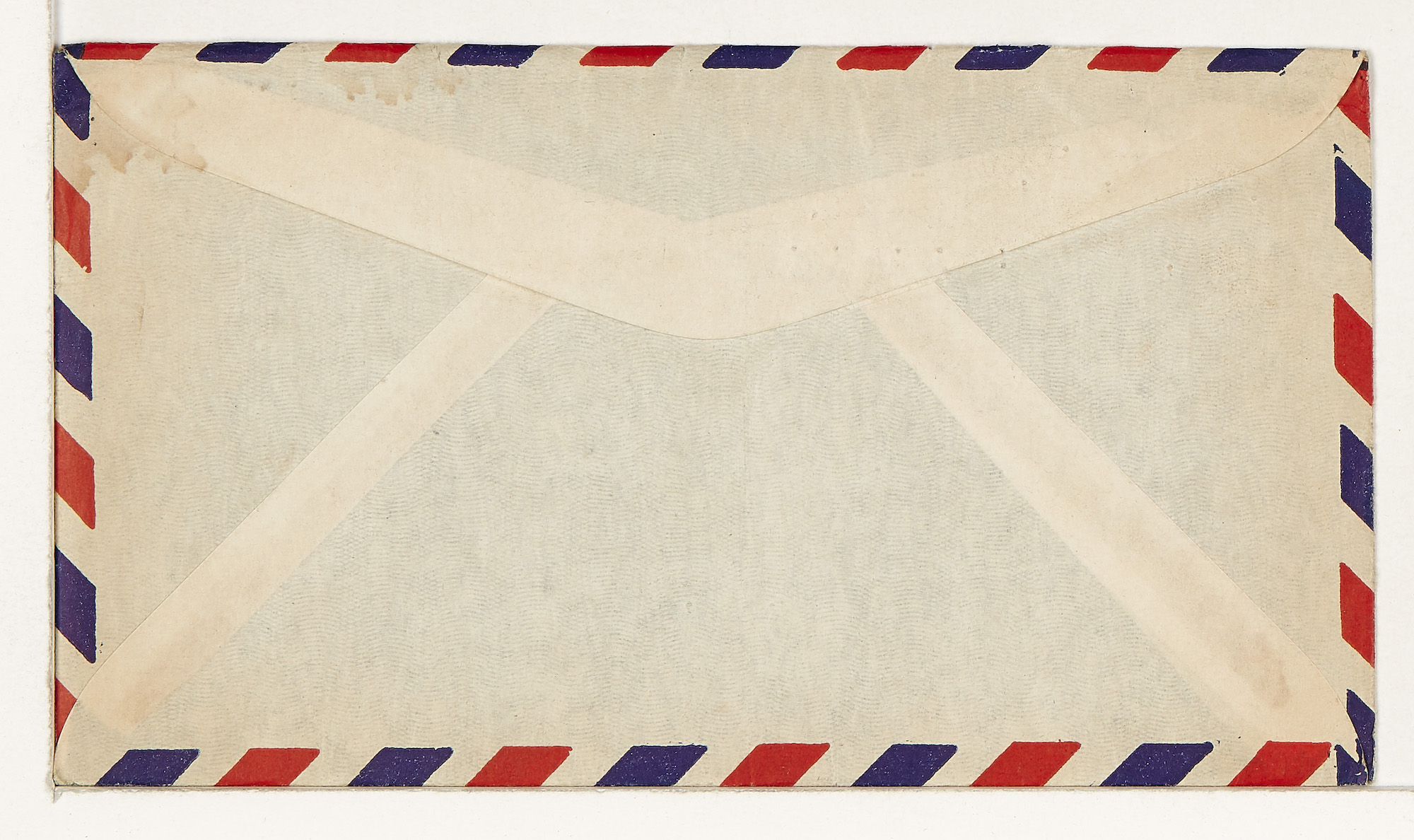
World War II Letters Give a Personal Glimpse of History
The gift of the Walter M. Goldschmidt Papers to the University Archives adds a new dimension to World War II history collections for students and scholars. The collection, donated by the Goldschmidt family, includes approximately 400 letters written by Walter to his parents, Herman and Gertie Goldschmidt, during his time in the European Civil Affairs Division, 1943-1946, in England, France, Belgium, and Germany.
The letters describing everyday events and experiences were written on the frontlines of history, from the vantage of Walter’s German-Jewish heritage and his position in the U.S. Army. Some of the letters capture the plight of European Jews at this time.
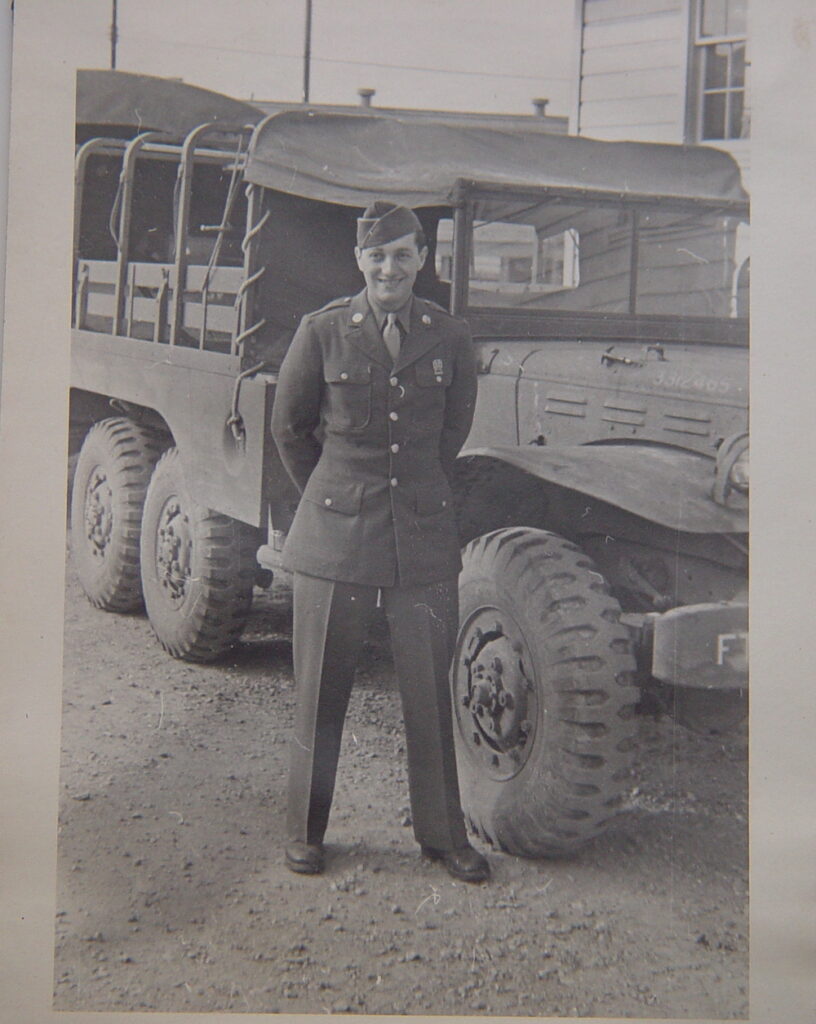
Topics of note include a visit to the Goldschmidt hometown in Biebesheim, Germany, the concentration camp in Flossenbürg, Germany, and finding the parents of Fred Katz in Brussels. (Katz was living with Goldschmidt’s parents in Chicago after fleeing Nazi-occupied Belgium.)
A similar letter in December 1945 touches upon his attempt to secure the release of a family friend called Wilhelm Wedel “whose outfit was taken over by the SS during the last days.”
Two pivotal letters from August 1945 in the collection recount Walter’s trip to Biebesheim. Walter describes the town and reunions with old friends and neighbors in Biebesheim that his parents asked him to visit. “Biebesheim is almost undamaged by the war,” he notes of his initial impression. His arrival in town creates a stir. “Everybody we ever knew appeared and most cited little incidents like what they did the day we left.”
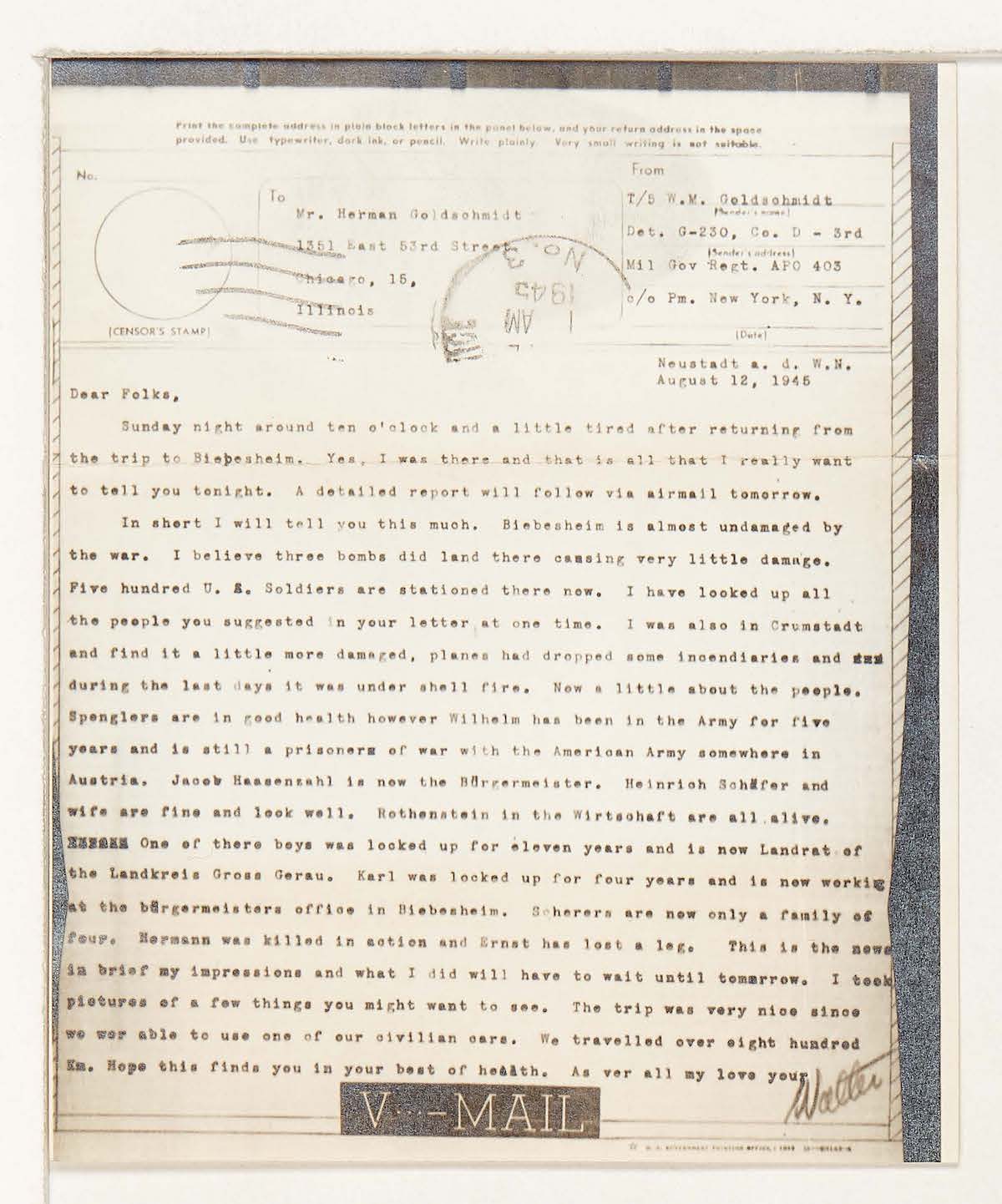
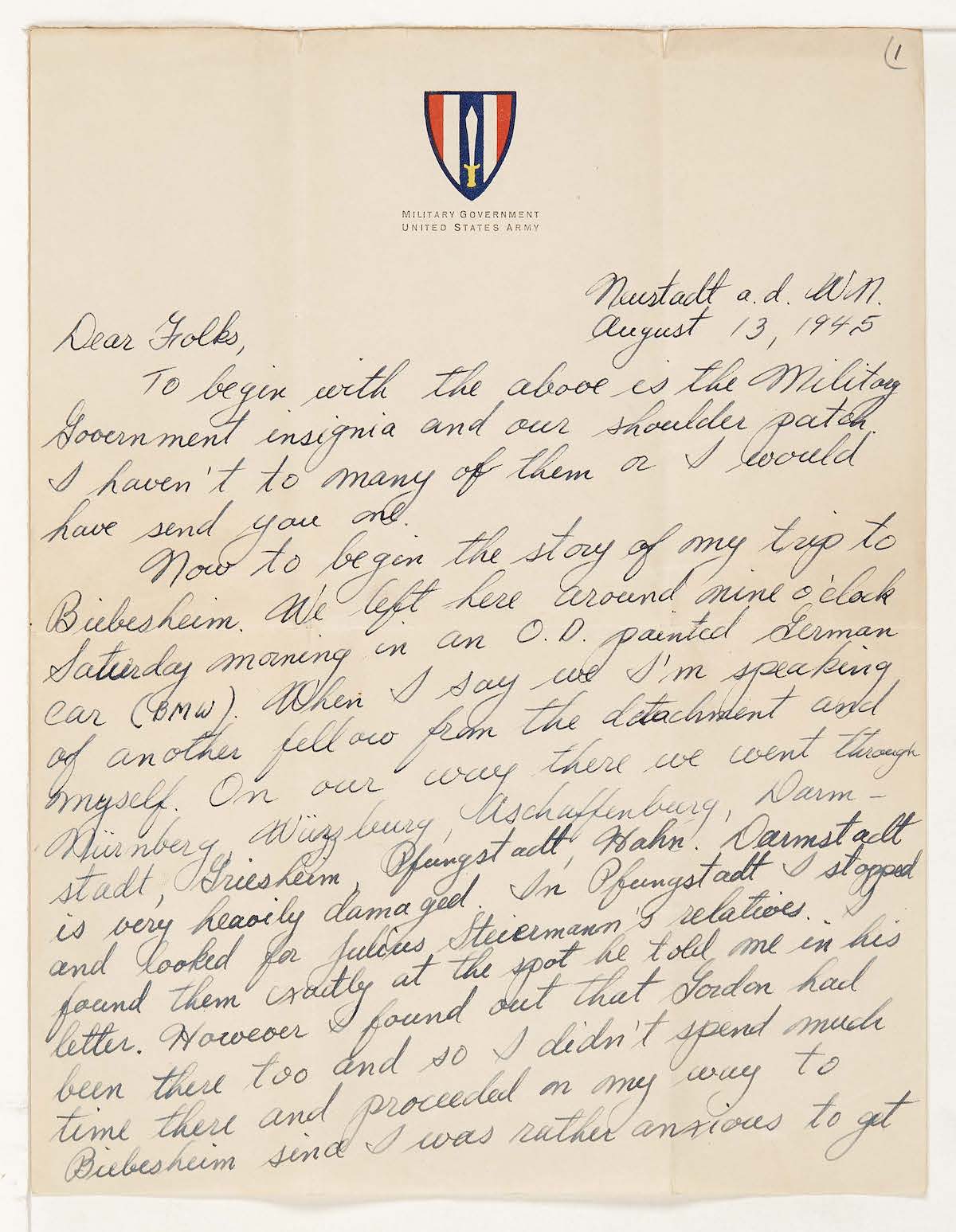
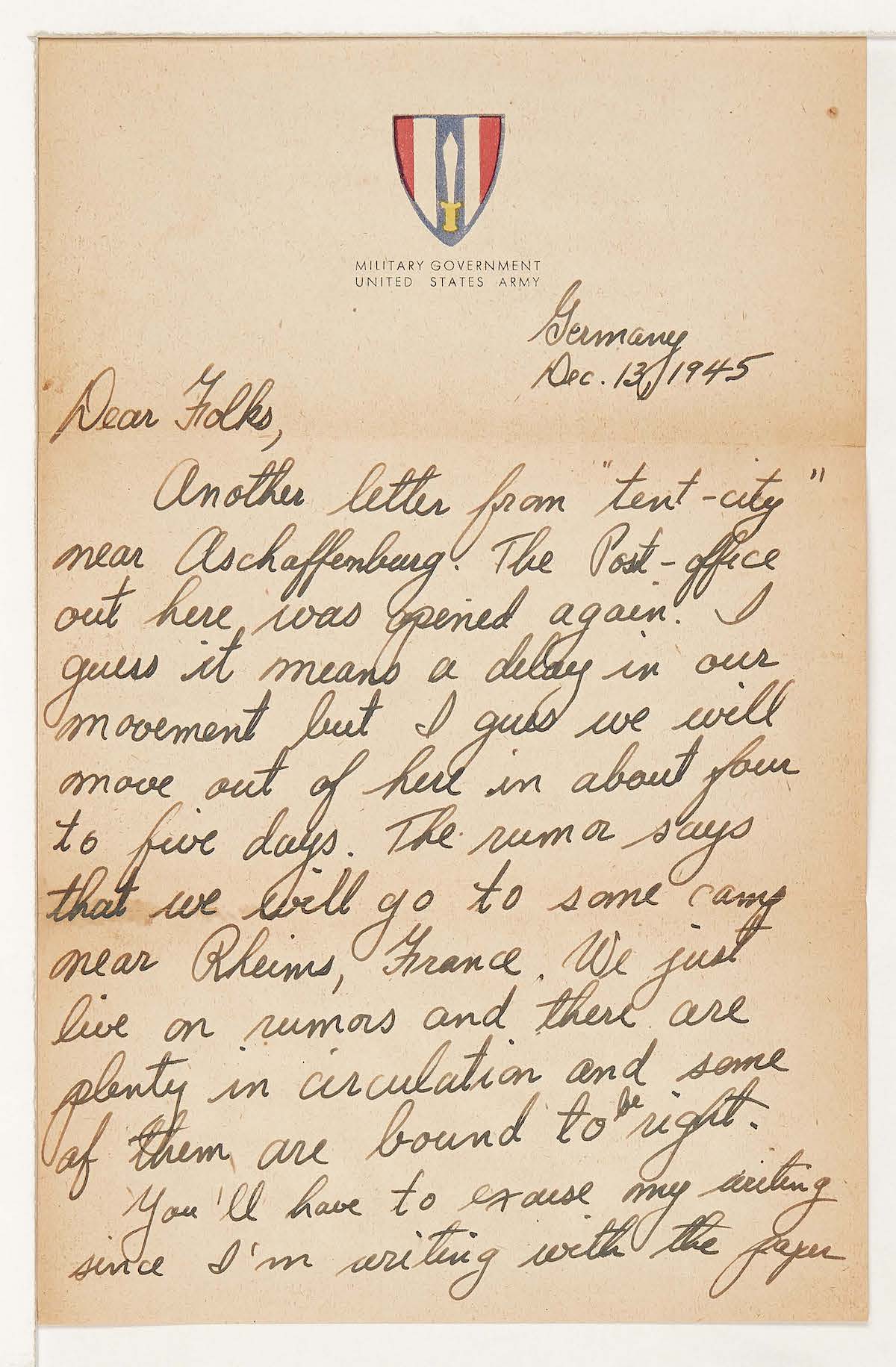
Besides capturing the excitement that grips the townspeople during Walter’s visit, the letters also convey news of death, suffering, and loss. Attempting to relay every change he encounters in people and place—both of a personal and political nature—Walter writes, “The Nazis were still in town but none of them were left in governmental positions.”
These pieces of correspondence are valuable primary historical documents for researchers. “The letters cover several years of one person’s experience during World War II. They give us a snapshot of that time period and the war from Goldschmidt’s perspective,” said Sonya Rooney, university archivist.
Some of the correspondence will be showcased in Olin Library at an exhibition related to the second World War in summer 2022.
The collection also includes digital photographs of a scrapbook assembled by Herman documenting Walter’s service and an interview with Walter discussing his life from leaving Germany until the end of World War II.
Gift will Support Research and Teaching
A generous financial gift by the Walter and Karla Goldschmidt Foundation is being used to house, organize, describe, and digitize the collection for the purposes of teaching, learning and scholarship.
The fund will also be used to digitize two newspaper archives: St. Louis Argus and St. Louis Sentinel; to support associated activities, such as metadata creation, equipment procurement, and digital preservation; and for the support of additional digitization work within University Libraries’ collections in the future.
The gift was made possible through the efforts of Walter’s family, including his son, Jim Goldschmidt, a Washington University alumnus and member of the Libraries’ National Council.
Jim recalled how difficult it was to read primary source French newspapers on a microfilm machine while he was studying European history in graduate school. “I wanted to support not only the digitization of the letters but also the newspapers because I thought it would be useful for research and helpful to students, particularly graduate students.”
Preserving the Letters
Multiple units in the University Libraries were a part of the process, from acquiring the collection to organizing, inventorying, preserving, digitizing, and, finally, making the letters publicly available in the reading room. These divisions within the Julian Edison Department of Special Collections include the University Archives, Preservation and Digitization, and Research and Access.
Tears in the letters were repaired by a dedicated preservation team, led by Danielle Creech, head of preservation and digitization at the Washington University Libraries. The repairs made the affected letters stable enough to digitize.
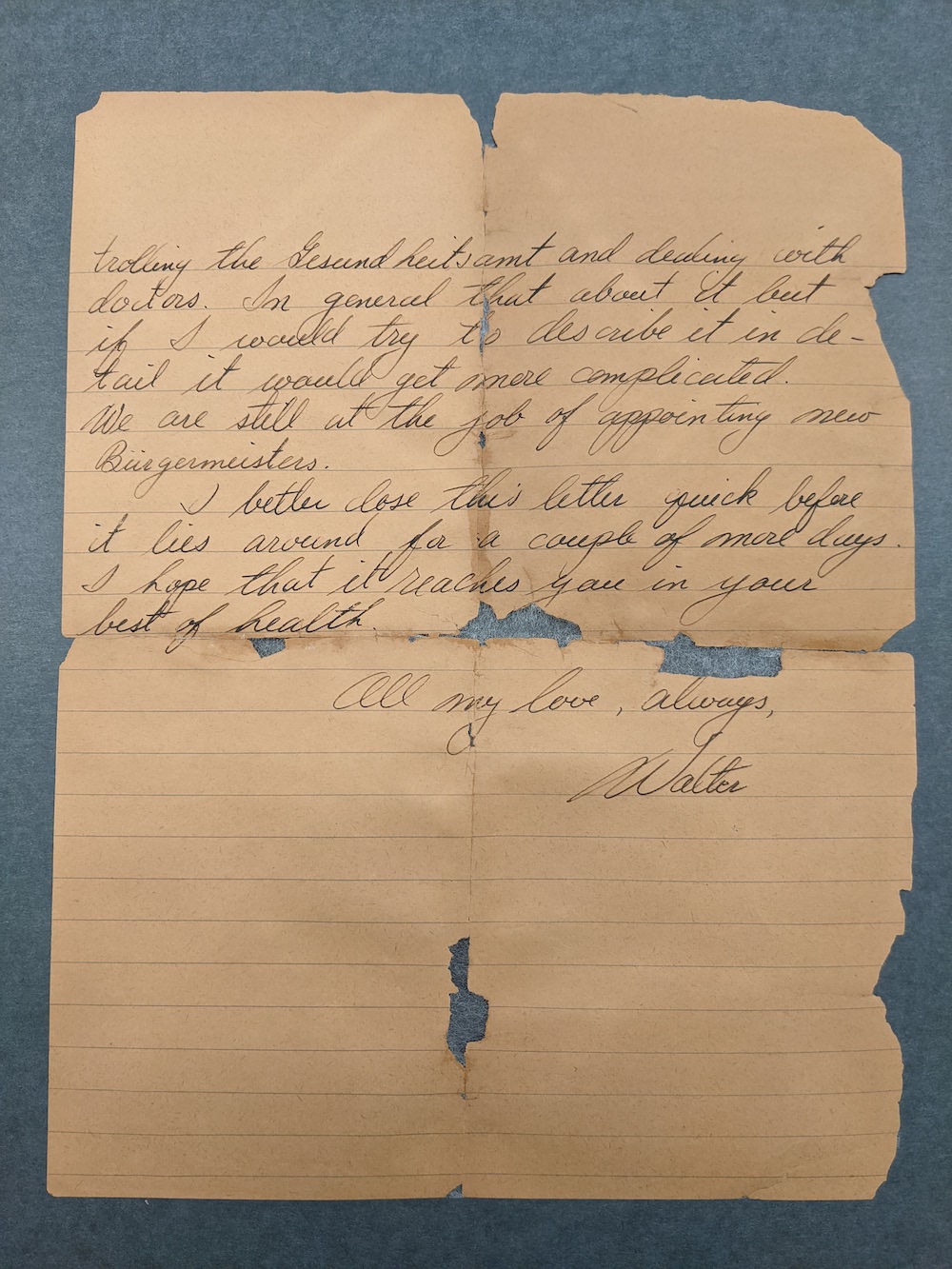
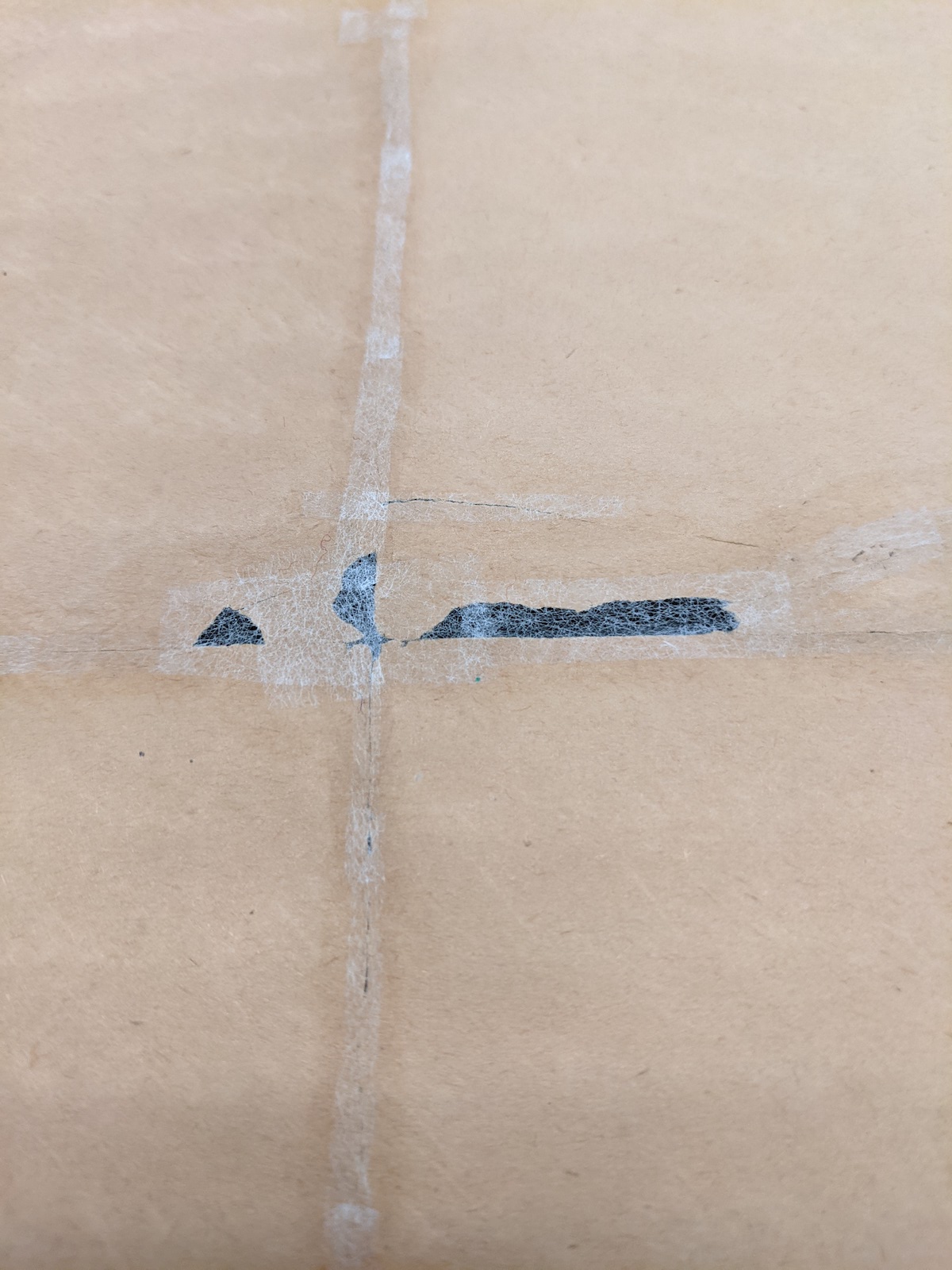
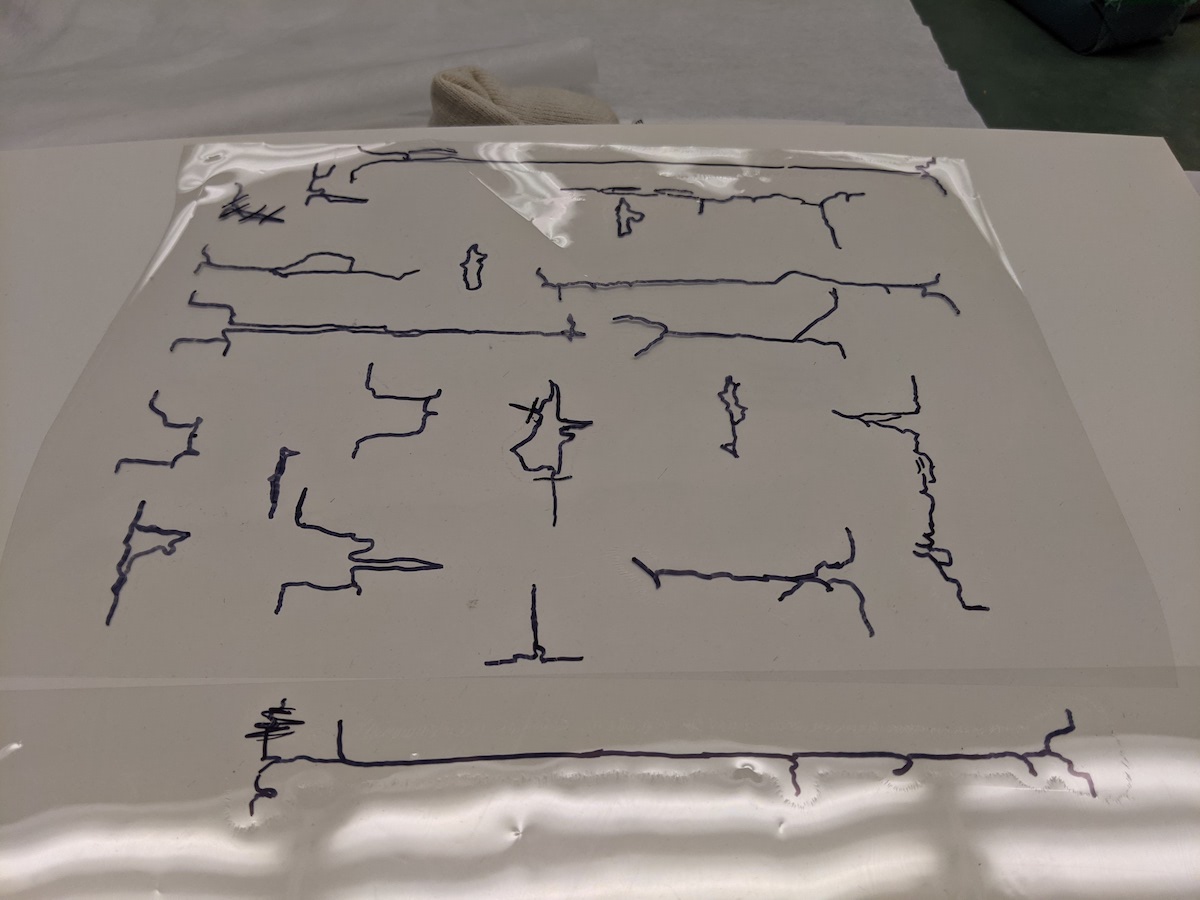
“Our in-house staff has the skills to repair the documents so they are better preserved for the future,” Rooney said. “Since the project involved different areas of Special Collections, many staff members touched the letters before they reached an audience.”
Readers can access the finding aid for the collection online here, including a link to the digitized letters: aspace.wustl.edu/repositories/4/resources/952.
Who Was Walter Goldschmidt?
Walter M. Goldschmidt (October 15, 1922–July 9, 2007) spent his childhood in Biebesheim, Germany, with his parents and his sister, Elsa Spitz. In 1936, the family immigrated to the United States, in response to the increasing persecution of Jews. Eventually settling in Chicago, Illinois, Walter graduated from Hyde Park High School.
Walter’s family had lived in Biebesheim for multiple generations before leaving in 1936. When he returned within less than ten years in 1945, Walter was writing about a place that was still familiar to his parents and where many of their friends remained.
“He was writing to my grandparents about what it was like being in Germany again, visiting their hometown and meeting people they knew. That’s why I think my grandparents preserved the letters because they meant something to them about where they were born and where they came from,” Jim Goldschmidt said.
In 1943, Walter was drafted into the Army and he used fluency in German to serve as a translator in the European Civil Affairs Division. After his discharge from the Army in 1946, Walter worked for Continental Grain. In the early 1970s, he assisted in establishing a futures brokerage division of Continental Grain, ContiCommodity Services. He was a director of the Board of Trade in Chicago from 1971 to 1976 and he was on the committee that developed financial futures trading.
Walter married Karla Ebstein. The couple had three children including twins, Jim Goldschmidt and the late Jane Deal, and Susan Goldschmidt.